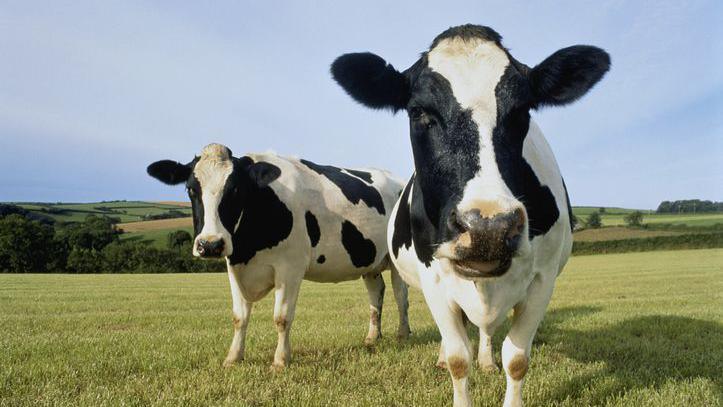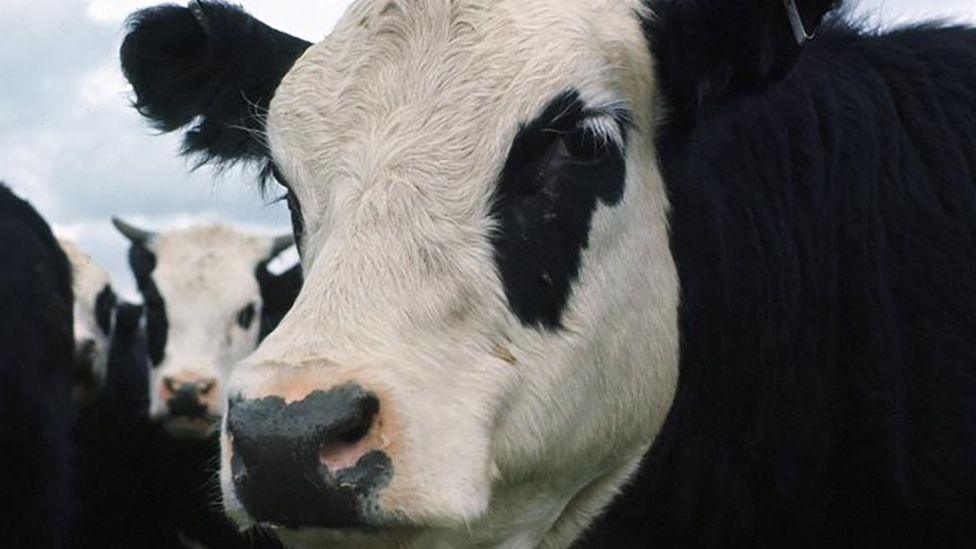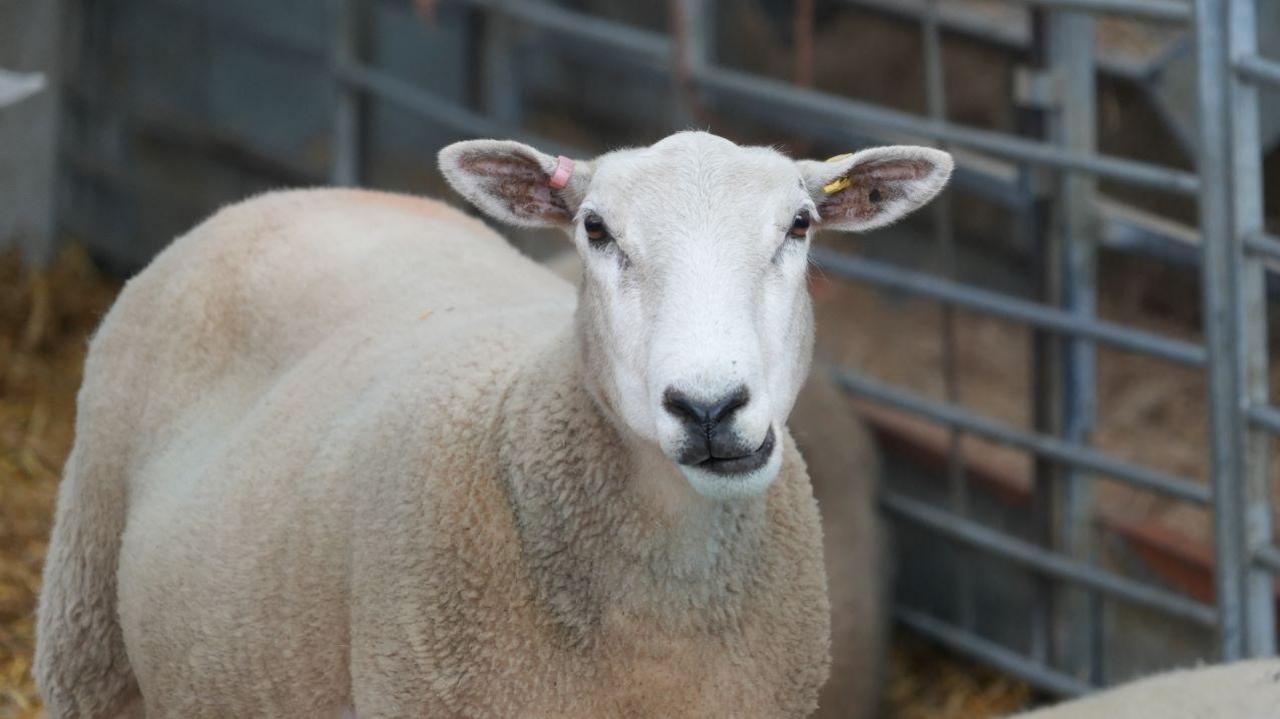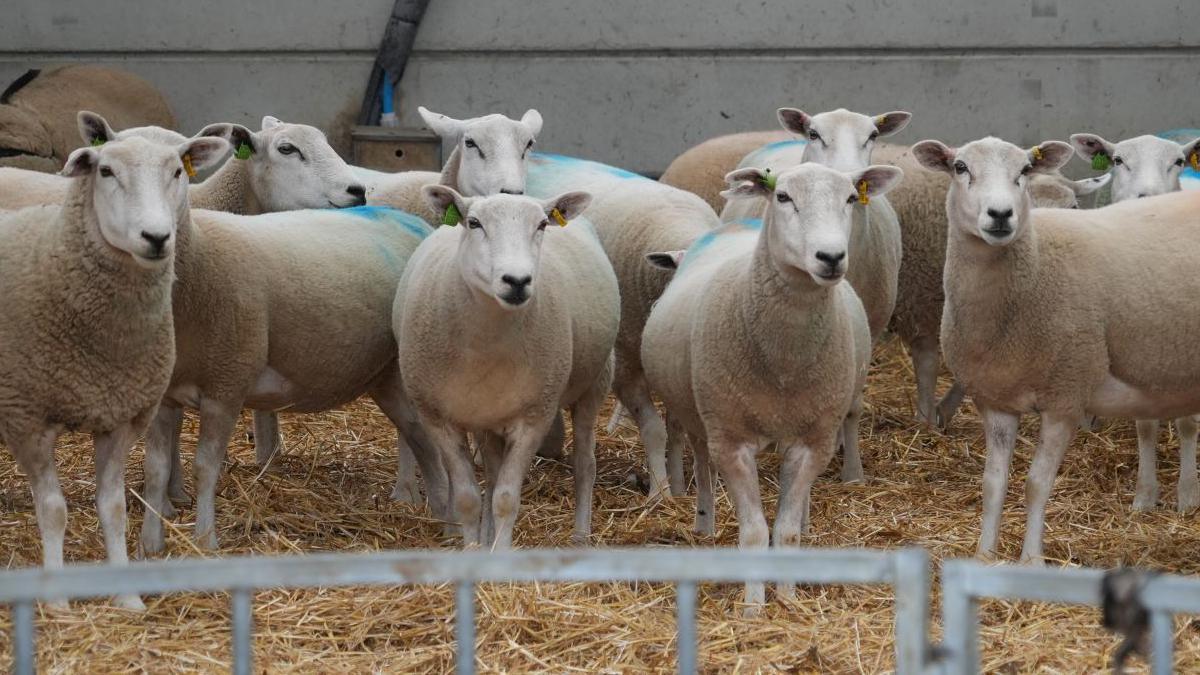Further bluetongue cases see control zone extended

The disease, which is spread by biting midges, causes a fever and swelling of the mouth in infected animals
- Published
More cases of bluetongue disease at farms in England have been confirmed, leading to the expansion of a temporary control zone.
In North East Lincolnshire, two further cases of the disease were detected on Wednesday after an initial case was confirmed on Tuesday, and the control zone was expanded as part of the government's response to the disease.
There was also a further case identified in Essex on Wednesday, but there was no change to the control zone there.
Lindsey Hutton, a farmer and chair of the Coningsby and Horncastle National Farmers Union, in Lincolnshire, said the bluetongue outbreak was just the latest challenge in what had been "not an easy year" for farmers.
She said farmers had already suffered "difficult harvests" and flooding before the arrival of bluetongue.
She also said "food security needs to be a priority for the government", and urged farmers in the county to remain vigilant and make sure they followed the rules in place in the control zones.
Control zones
The disease was first identified in the Yorkshire and Lincolnshire region on 4 September, with a case confirmed in Withernsea.
A 12-mile (20km) control zone was placed around the East Yorkshire and North East Lincolnshire region by Defra, and that has has now been extended.
The exclusion zones have special rules for transporting cows, sheep and some other hooved animals, such as goats.
Though the disease can be fatal in some farm animals, bluetongue does not pose a threat to humans or domestic animals and does not affect food safety.
Norfolk and Suffolk were the first counties to be affected in England, and restrictions there were imposed after cases were identified in August.
Listen to highlights from Lincolnshire on BBC Sounds, watch the latest episode of Look North or tell us about a story you think we should be covering here, external.
- Published5 September 2024

- Published4 September 2024

- Published2 September 2024
